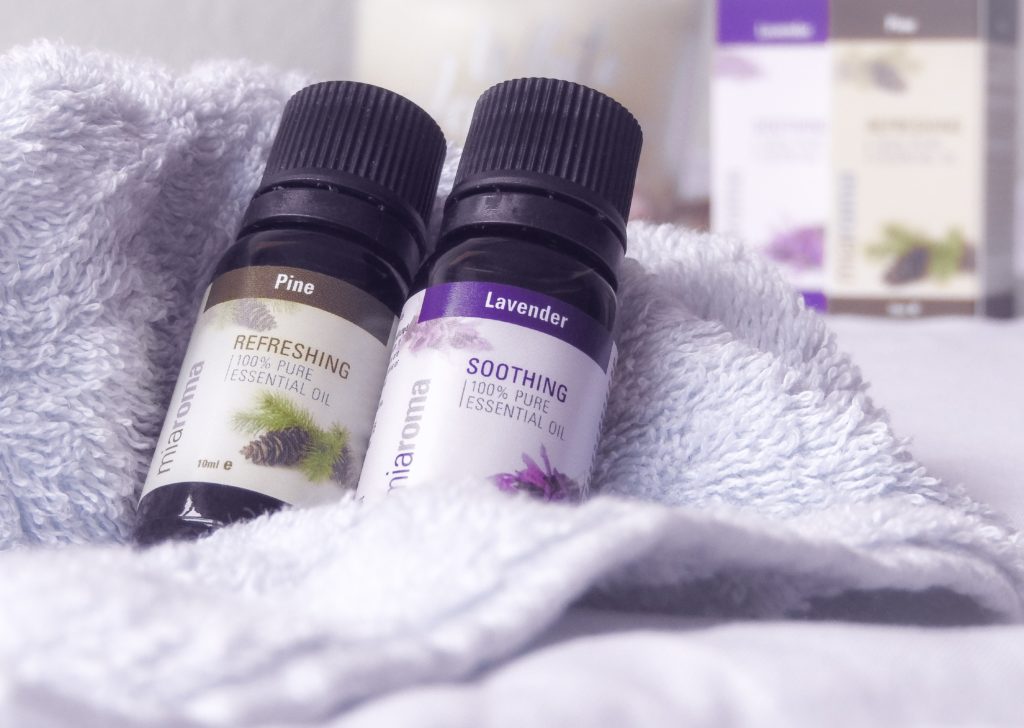Aromatherapy uses natural ingredients such as essential oils and other aromatic plant compounds to promote health. It is often referred to as complementary, alternative or traditional therapy. It is widely used in the treatment of anxiety and other health issues by inhalation or topical application of these natural plant extract.

According to the National Association for Holistic Aromatherapy (NAHA), aromatherapy is “the therapeutic application or the medicinal use of aromatic substances (essential oils) for holistic healing)
The essential oils is used in aromatherapy are volatile compounds having the oily fragrance. Essential oils are also be referred to as volatile oils. Essential oils are most times known simply by the plant which they where extracted from, for example oil of peppermint or peppermint oil. This is because the oils contain the plants essence and aroma.
Not only do essential oils treat viral, bacterial, fungal or parasitic infections, they also relieve pain, improve mental health, moods, stress, sleeping difficulties.
Aromatherapy works effectively through smell and skin absorption. It is done using
i. body oils, creams or lotions, massage or topical application
ii. bathing salts
iii. hot and cold compression
iv. diffusers
v. clay masks
vi. facial steams
vii. aromatic spritzers
v. inhalers
Aromatherapy is not subjected to one method of application; these products can be used alone and in combination with others. Each essential oil has its own unique healing property, uses and effects. Essential oils that can be used for anxiety include lavender oil, rose oil, jasmine oil etc.
Benefits of aromatherapy include
- Boost and strengthens immunity
- Calms and relax
- Manages and soothes pain
- Relieves anxiety
- Boost energy
- Reduces stress and agitation ‘fights pathogenic microbes
- Improves focus
- Aids digestion
- Improves skin conditions
Boost Immunity: Essential oils boost your immunity, protecting you from bacteria and viruses and at the same time filling your house with their fragrance. Essential oils help boost your immunity by combining highly antiseptic, antifungal and antibacterial properties. T can also act as an expectorant and also a decongestant. They are great for stimulating lymph movement and supporting cleaning.
Calm and Relax: Using and aroma diffuser is one of the best ways to maintain the integrity of essential oils for therapeutic use. They purify the air and distribute negative ions, improving oxygen flow while calming and relaxing your nerves. Research shows that oils such as lavender oil lowers blood pressure, calm the nervous system as well as the heart rate and skin temperature. They charge brain waves to a more relaxed state by interacting with the neurotransmitter GABA to help quiet the brain and nervous system activity, reducing agitation, anger, aggression and restlessness.
Soothe and Manage pain: Essential oils have analgesic and anti-inflammatory effect that help soothe pain. Oils from eucalyptus have a cooling effect on muscles and reduces pain and inflammation. Other essential oils that can be used include lavender oil, rosemary oils, etc.
Research/studies show that aromatherapy has the ability to treat various conditions such as:
- Rheumatoid arthritis
- Menstrual pain
- Anxiety & agitation
- Depression ‘asthma
- Fatigue and tiredness
- Headache
- Asthma
- Toothache
- Stress
- Pain & inflammation
- Cancer
- Alopecia/hair loss
- Peripheral neuropathy
If used correctly, under the supervision of a qualified practitioner.
Potential side effects include
- Nasal irritation
- Dermatitis
- Skin irritation
- Constipation
- Allergic reactions
- Rashes
- Asthma attacks
- Headaches
In general, essential oils are safe to use if used as directed. These side effects as mentioned should be taken into consideration especially if you take prescription medicines. They may reduce the effectiveness of conventional drugs. It may exacerbate health conditions.
It’s important the aromatherapist goes through your medical history, current health history, diet and lifestyle thoroughly. Your treatment is done to suit your needs both physical and mental.
Essential oils have its unique chemical makeup and use, that’s why its important to speak to a certified nurse, aromatherapist, pharmacist, doctor or even a massage therapist before applying any oil for therapeutic use.
Essential oils in their natural and undiluted form are highly concentrated and can cause possible irritation to your skin and are poisonous if swallowed. So, it is important to add them to body lotions or carrier oils before you apply them topically. Be sure you buy an already diluted oil.
A 5% percent concentration is recommended. Avoid swallowing, some oils produce toxins which could cause damage to organs such as the liver, kidney. In some cases it could be fatal and hazardous.
Caution should be observed in
- Pregnant and lactating women
- Hypertensive patients
- Patient undergoing surgery
- Epileptic patients
- Allergy
- Asthma
- Psoriasis and Dermatitis
- People who have hormone sensitive cancers
Pregnant and Lactating Mothers: Oils such as peppermint and lavender oil should be avoided, as it may be expressed in breast milk or pose a great risk in the developing fetus. Sufficient studies, however, have not been carried out to prove its safety, so it’s not recommended.
Hypertensive patient: Oils like lavender interact with anti-hypertensive drugs (used to treat high blood pressure). It drastically reduces blood pressure more than needed.
Citrus essential oils increases the risk of sunburn. It makes the skin more sensitive to ultraviolet light. Lavender essential oil could react with chloral hydrate and other sedative medication. Excessive sleepiness may occur as a result. F used during surgery along with anesthetic or other related medications, it may cause a slowdown of the nervous system.
Finally it is important to store essential oils away from sunlight, oxygen and heat as they can affect the purity and quality of the oil. Always get your products from trustworthy and reputable source since oils aren’t FDA regulated. Thus, guarantees quality of the product.
Always pay attention to how the different essential oils and method of application affects you. Each essential oil has its unique use and effect. Combining two or more essential oils together may offer even more healing properties and synergic benefits.
Remember to always consult a certified practitioner, doctor, nurse, pharmacist before any aromatherapy.
Take note aromatherapy is not by any way meant to replace any doctor- approved medication treatment plan but complement it (Complementary therapy). As of today no licensing boards of aromatherapy exist or available in the United States. In countries such as France, aromatherapy is regulated as prescription drugs, only to be prescribed by a doctor
If this post was helpful, let us know by commenting below

